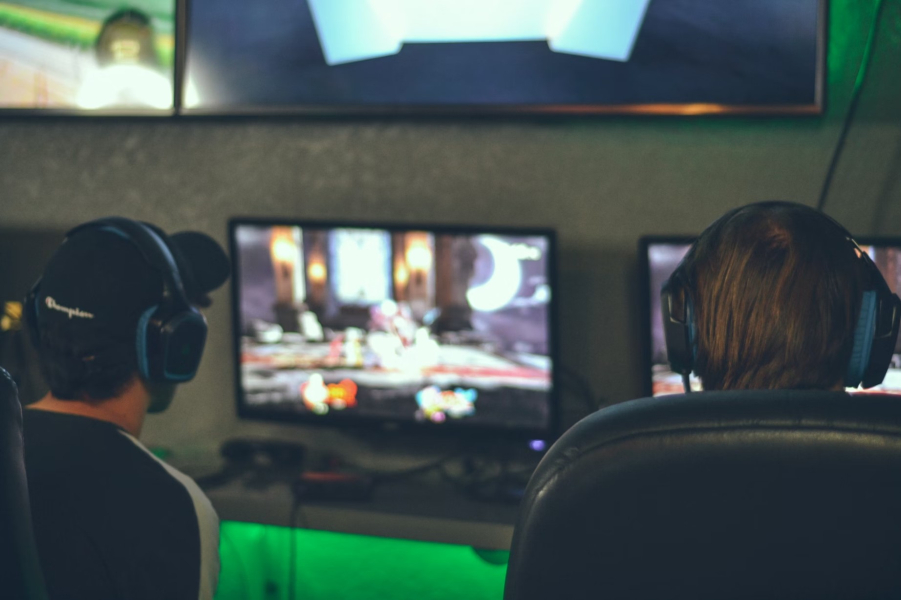
In the digital age, video games have evolved from entertainment to tools that can significantly
impact students' cognitive abilities and concentration. This article delves into how video gaming
influences student focus and cognitive skills, shedding light on its potential benefits and areas of
concern.
Enhancing Cognitive Abilities through Gameplay
Video games are more than just digital distractions; they are complex simulations that can significantly enhance cognitive skills. For instance, strategy and puzzle games require players to think ahead, plan, and solve problems, directly translating to improved strategic thinking and problem-solving skills in real-life scenarios. Such games often involve managing resources, building structures, or navigating intricate puzzles, demanding high cognitive engagement.In parallel, seeking expert assistance, like getting a term paper from GrabMyEssay, can further amplify these cognitive benefits. When you study with experts, you gain access to tailored guidance and insights that deepen your understanding and strengthen your problem-solving abilities. This combination of interactive learning through video games and expert academic assistance forms a robust approach to enhancing cognitive skills and academic performance.
Furthermore, action games, especially those that are fast-paced, can significantly improve attention to detail and reaction times. Players must make split-second decisions, respond to sudden changes, and simultaneously keep track of multiple elements. This high level of engagement results in better multitasking abilities and a heightened sense of awareness, which are valuable skills in academic environments. Students who engage in such games might be more capable of handling fast-paced and complex tasks, both in and out of the classroom.
However, it's crucial to note that these benefits are most pronounced when gaming is done in moderation. Excessive gaming can lead to the opposite effect, causing distractions and reduced academic performance. Therefore, balance is key.
Impact on Concentration and Focus
In the context of student learning, concentration and focus are vital. Video games uniquely capture and hold players' attention, which can translate into improved concentration skills. Games often require prolonged periods of intense focus to achieve objectives or progress to higher levels. This gaming aspect trains the brain to maintain high concentration levels over extended periods, which can benefit academic studies.Moreover, many educational games are designed to improve students' concentration and focus. These games incorporate educational content in an interactive and engaging format, making learning more appealing. By capturing students' attention in a way that traditional teaching methods may not, these games can improve academic performance and provide a more profound interest in learning.
However, the key to harnessing the benefits of video games for improving concentration lies in choosing the right games and setting reasonable time limits. Games that are overly addictive or do not require strategic thinking can have the opposite effect, leading to decreased attention spans and poorer academic results.
Potential Downsides and Mitigation Strategies
While video games can offer significant cognitive benefits, there are potential downsides. Overindulgence in gaming can lead to addiction, negatively impacting academic performance and social interactions. It's essential to recognize the signs of excessive gaming, such as declining grades, lack of interest in other activities, and changes in behavior.Parents and educators must set clear boundaries and monitor gaming time to mitigate these risks. Encouraging a balanced lifestyle, where video gaming is just one of many activities, can help prevent addiction and ensure that the cognitive benefits of gaming are maximized.
Additionally, selecting educational and age-appropriate games can further enhance the positive impact on cognitive skills and concentration.
Conclusion
Video games can significantly enhance students' cognitive abilities and concentration. Games can be a valuable tool in the educational arsenal by encouraging strategic thinking, problem-solving, solving, and sustained attention. However, moderation and careful selection of games are essential to avoid the pitfalls of overindulgence. With the right approach, video games can be more than entertainment; they can catalyze academic success and cognitive development.BIO
Alice Barrios is a seasoned author and blogger with a keen interest in the intersection of technology and education. Her expertise lies in exploring digital media's cognitive and psychological impacts on students. With a background in educational technology, Alice has dedicated her career to researching and writing about the evolving role of video games and interactive media in learning environments, always aiming to provide insightful and practical content for her readers.
Top 70
Secure your Overwatch seasonal rewards, today.
